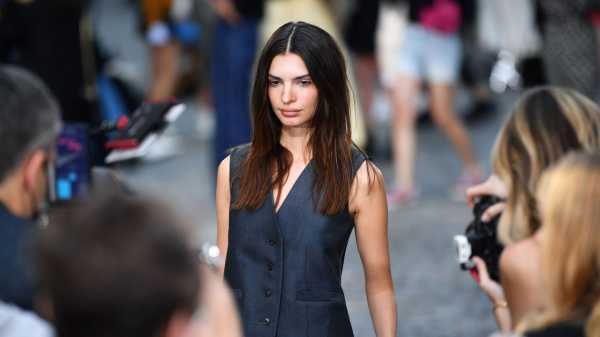
Some injustices are so self-evident and quotidian that they lose their capacity to enrage. The undue burden placed on women to maintain their appearance—and to be constantly appraised on the basis of physical attractiveness, both covertly and overtly—is one such injustice. Even in the era of supposed body positivity and self-acceptance, the amount of resources devoted per woman to grooming, primping, nipping, and tucking toward some aspirational physical ideal is extraordinary, and yet so easily shrugged off as part of everyday life.
But what about the rare women who are those physical ideals, the women born with the supernatural beauty to which others aspire? (These are the women whom Naomi Wolf crudely described, in “The Beauty Myth,” as “gaunt, yet full-breasted Caucasian[s], not often found in nature . . . assumed by the mass media, and often by magazine readers and movie watchers as well, to be eternal, transcendent.”) This is the position from which Emily Ratajkowski, the model and entrepreneur, writes. Lauded for her beauty since she was a young girl, and made world-famous by her topless appearance in a music video, in 2013, Ratajkowski has spent decades receiving the world’s lecherous gaze, metabolizing it, inviting it, rejecting it, capitalizing on it, and agonizing over it. In her new essay collection, aptly titled “My Body” after her foremost preoccupation, Ratajkowski attempts to reckon with how her appearance has shaped her personal relationships, her career, and her psyche. If there is a thesis statement to be drawn from Ratajkowski’s somewhat muddled, overly lyrical début, it’s that physical beauty—in particular, a near-perfect, if outdated, sort of beauty—is a heavy cross to bear. Beauty is not an antidote to emotional anguish or self-doubt, but, instead, a breeding ground for more insecurity: “I so desperately craved men’s validation that I accepted it even when it came wrapped in disrespect,” she writes.
Sourse: newyorker.com






